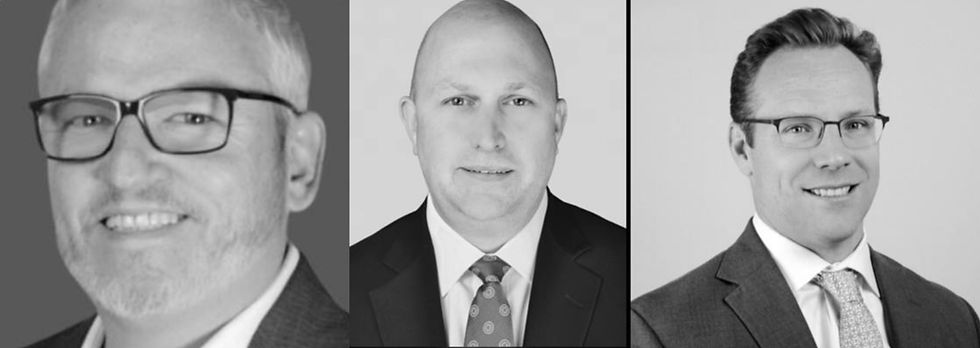Howard Marks Warns: Private Credit Boom Shows Classic Signs
- May 23, 2025
- 3 min read
In Brief:
Howard Marks, co-founder and co-chairman of Oaktree Capital Management, which oversees $200 billion in investments, sat down with Capital Allocators host Ted Seides to discuss the evolving credit landscape and his latest memo "Gimme Credit." Marks, whose firm is majority-owned by Brookfield Asset Management, identifies troubling parallels between today's private credit market and past investment bubbles. He warns that private credit has lost its "undiscovered and unloved" status that once made it attractive, growing from $250 billion in 2007 to over $1.5 trillion today. While not predicting imminent disaster, Marks cautions that the sector now faces the classic progression from innovation to imitation to speculation, with potential consequences becoming clear only when economic stress tests these investments.
Big Picture Drivers:
Market Cycles: Investment sentiment swings predictably from hate to love, creating opportunities and risks
Interest Rate Impact: The shift from zero rates to 5%+ has fundamentally changed private equity and credit dynamics
Alternative Asset Growth: Investors' perpetual search for higher returns drives capital into new asset classes
Regulatory Gaps: Private credit operates without SEC oversight, creating marking and transparency issues
Key Topics Covered:
Private Credit Evolution: How the market grew 6x in 17 years but lost its competitive advantage
Valuation Concerns: The disconnect between private and public market pricing during stress periods
Private Equity Challenges: $3 trillion in companies waiting to be sold as the leverage model breaks down
Investment Philosophy: Oaktree's focus on risk control and avoiding losers rather than finding winners
Key Insights:
Pendulum Theory: Markets swing from "I wouldn't touch that with a 10-foot pole" to widespread adoption and overpricing
Marking Mysteries: Private credit's stable valuations during volatility may mask underlying risks through "extend and pretend" practices
Default Cycle Inevitability: Recession will eventually test private credit's resilience, but timing remains uncertain
Silver Bullet Syndrome: Private equity's status as the "can't miss strategy" has ended due to higher borrowing costs
Cultural Advantage: Successful investing requires organizational discipline that permeates every decision, not just individual talent
Liquidity Illusion: Private markets offer apparent stability by avoiding daily price discovery, potentially masking real risks
Asset Fundamentals: Despite Wall Street innovation, only two basic asset types exist - ownership and debt - limiting true diversification
By The Numbers:
Private Credit Growth: From $250 billion (2007) to $1.5 trillion today - a 6x increase in 17 years
Interest Rate Shock: Fed funds rate jumped from 0.25% to 5.5% starting in early 2022
Oaktree's Scale: Grew from $7 billion when leaving TCW in 1995 to over $200 billion today
Private Equity Dry Powder: Approximately $2.5 trillion in uninvested capital waiting for opportunities
Borrowing Cost Reality: Private equity deals now require 9-10% borrowing costs versus 6% in previous decade
High Yield Origins: When Marks started in 1978, the entire high-yield bond market was only $2.5 billion
Memorable Quotes:
"It's not what you buy, it's what you pay" - Howard Marks on the fundamental lesson from the Nifty Fifty crash
"If we avoid the losers, the winners take care of themselves" - Howard Marks on Oaktree's investment philosophy
"What the wise man does in the beginning, the fool does in the end" - Howard Marks paraphrasing Buffett on market cycles
"It's only when the tide goes out that you find out who's swimming naked" - Howard Marks quoting Buffett on hidden risks
"Don't just do something, sit there" - Howard Marks on the virtue of patience over hyperactivity in investing
"There's no eraser on the pencil" - Sheldon Stone (Marks' longtime partner) on the permanence of private investment decisions
The Wrap:
Marks' analysis serves as a sobering reminder that no investment strategy remains advantageous forever. His warning about private credit reflects broader concerns about asset pricing in an era of searching for yield. While he doesn't predict immediate collapse, his emphasis on maintaining discipline and preparing for inevitable cycles offers valuable guidance for institutional investors navigating today's complex credit markets. The interview reveals how even legendary investors must constantly adapt while holding firm to core principles of risk management and valuation discipline.



Comments